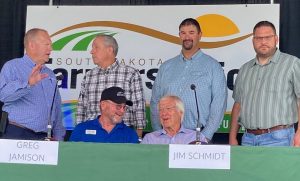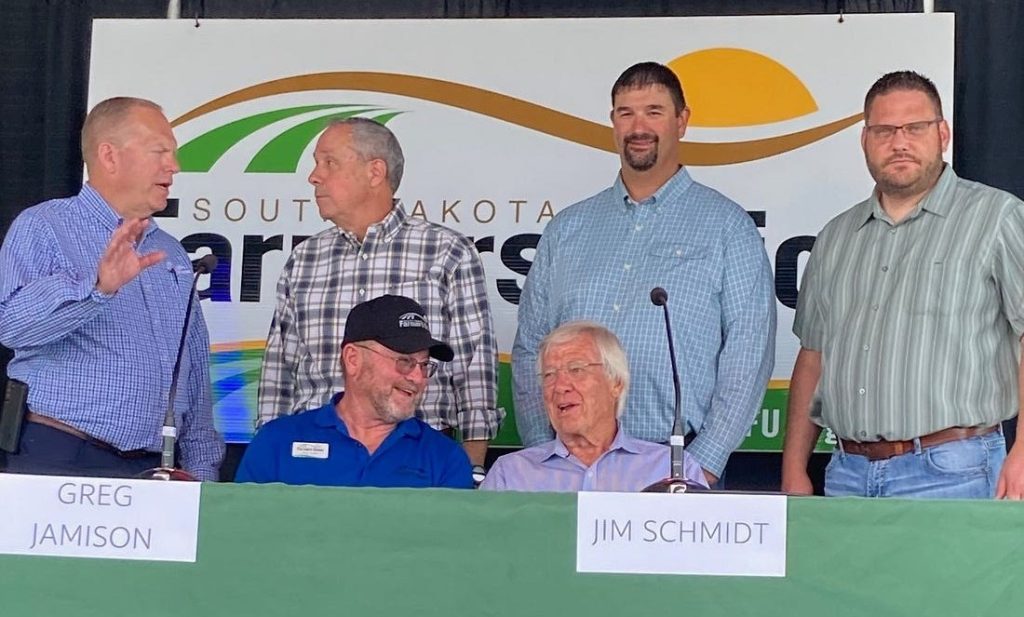
The Legislature’s property tax task force, created earlier this year, has at least two more meetings scheduled in 2025
HURON, S.D. —South Dakota’s property tax system took center stage Saturday during South Dakota Farmers Union Day at the State Fair in Huron.
The organization convened a panel of lawmakers, local officials, and educators to tackle one of the state’s most contentious issues: who ultimately pays the bill.
The forum, titled “South Dakota’s Property Tax Crossroads: Who Pays the Bill?”, drew a standing-room crowd. Farmers Union President Doug Sombke opened the session by framing the debate around rural communities.
“If our rural schools don’t have the resources, families won’t stay. And if counties can’t fund law enforcement or roads, those communities simply won’t survive,” Sombke said.
Lincoln County Commissioner Jim Schmidt explained how property taxes are determined at the county and municipal levels. He warned against cutting taxes without understanding the consequences.
“Every time you cut property taxes, you also cut services,” Schmidt said. “That means fewer deputies on the road, fewer miles of gravel maintained, and fewer resources for communities to grow.”
Representative Greg Jamison, a Sioux Falls Republican serving on the Legislature’s summer property tax task force, previewed legislation he is preparing for the 2026 session.
“If we want real property tax relief, we may have to look at shifting the burden,” Jamison said. “That could mean raising the sales tax so it’s not just property owners carrying the load.”
Huron Superintendent Kraig Streffhoff focused on school funding. He said higher valuations do not automatically mean more resources for classrooms.
“When valuations climb, the state reduces its share,” Streffhoff said. “Taxpayers feel like they’re paying more, but schools don’t actually see that money in the classroom.”
He added that while school districts can pursue opt-outs, they come with challenges.
“Opt-outs are an option, but they divide communities,” Streffhoff said. “They’re not a long-term solution.”
Bureau of Finance and Management Commissioner Jim Terwilliger said Governor Larry Rhoden’s administration is reviewing a variety of policy models.
“There’s no simple fix to property taxes,” Terwilliger said. “We’re looking at models from other states — from credits to circuit breakers — but any solution has to be sustainable for schools and counties.”
Sombke reiterated that stable funding is vital for rural communities.
“Counties are being asked to do more with less every year,” he said. “Without stable funding, law enforcement, roads, and schools in our rural areas are at risk.”
Moderator Mitch Richter, the Farmers Union’s lobbyist, reminded the crowd of the scale of the issue.
“Property taxes raise more than $2 billion a year in South Dakota,” Richter said. “They touch every family, every farmer, every business.”
The Legislature’s property tax task force, created earlier this year, has at least two more meetings scheduled in 2025. Members are expected to deliver recommendations ahead of the 2026 session.


